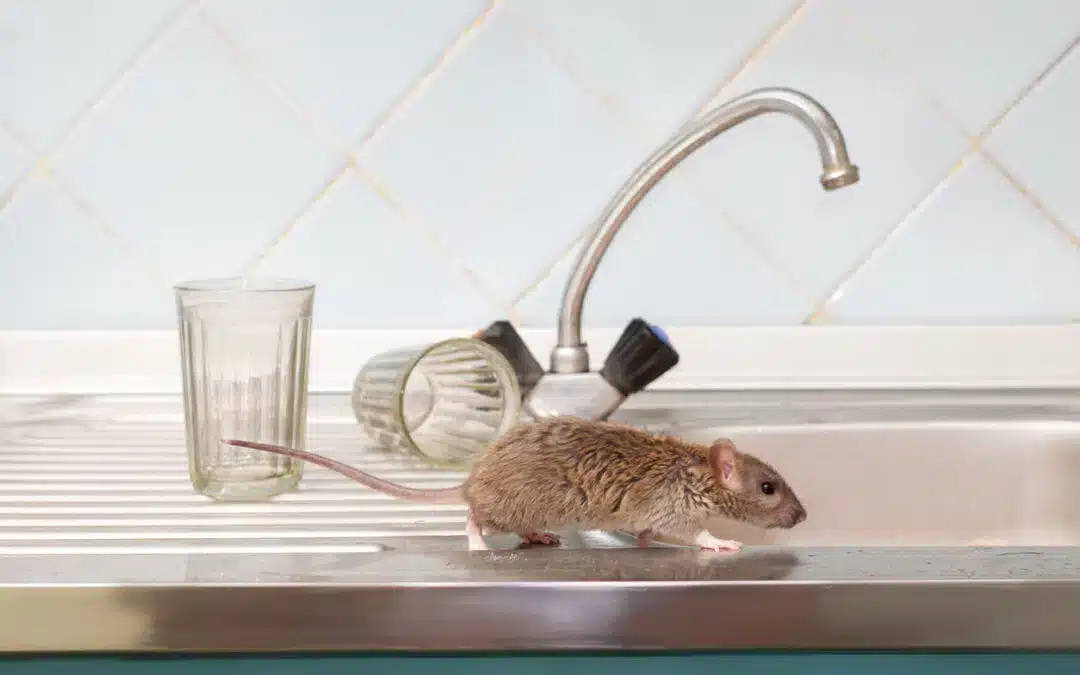Need Rodent Removal ASAP?
Give us a call for 24/7 Emergency Wildlife Control & Removal in Dallas/Fort Worth.
(817) 606-7607Contact UsContact UsRodents, such as rats and mice, have been connected to a variety of diseases that can be fatal to humans. These diseases can be spread by bites, contact with rodent droppings, or even inhaling dust or particles from rodent nests. It is critical to understand the different diseases that rodents can carry and to take preventative measures in your home.
What is Hantavirus?
The Hantavirus is one of the most well-known diseases associated with rodents. Contact with infected rodents’ urine, droppings, or saliva can spread this virus. Hantavirus symptoms include fever, chills, muscle aches, and fatigue, and it can lead to respiratory failure and death in severe cases. To keep Hantavirus from spreading, keep your home clean and free of rodent droppings, and avoid contact with wild rodents.
What is Salmonella?
Salmonella is another disease that rodents can transmit. Food poisoning caused by this bacteria can result in symptoms such as diarrhea, fever, and abdominal cramps. Salmonella can be spread by coming into contact with rodent droppings or eating food contaminated with rodent urine or droppings. To avoid the spread of Salmonella, make sure to store foods in airtight containers and practice good hygiene when handling food.
It is critical to take precautions to keep rodents out of your home in order to prevent the spread of these diseases. Sealing any cracks or holes in your home’s foundation or exterior walls, cleaning up any rodent droppings promptly, and keeping your home clean and clutter-free. As well as cleaning up any spilled food or pet food, and keeping their food bowls clean and free of debris are all examples.
What is Leptospirosis?
Another disease that rodents can transmit is leptospirosis. This disease is caused by a bacterium found in infected animals’ urine, including rodents. Leptospirosis symptoms include fever, headache, and muscle aches. It can cause liver and kidney damage in severe cases. To avoid the spread of Leptospirosis, avoid contact with rodent urine and use caution when cleaning up rodent droppings.
What is LCMV?
Rodents can also carry pathogens such as Lymphocytic choriomeningitis (LCMV) and plague, in addition to these diseases. LCMV is a virus that can cause fever, headache, and nausea, as well as meningitis and encephalitis in severe cases. Plague is a bacterial infection that can cause fever, chills, and swollen lymph nodes, as well as septicemia or death in serious conditions.
Finally, rodents can transmit a variety of diseases that are harmful to humans. It is critical to understand the various diseases that rodents can carry and to take preventative measures in your home. This can include keeping your home clean and rodent-free, avoiding contact with wild rodents, and exercising caution when cleaning up rodent droppings. Additionally, if you suspect a rodent infestation in your home, make sure to consult a professional pest control or wildlife removal company.
Are you in need of rodent removal? Our friendly operators at Dallas Fort Worth Wildlife Control are available now at (817) 606-7607 or (972) 954-9244. Find out more about our rodent removal in Arlington and Fort Worth, TX.


